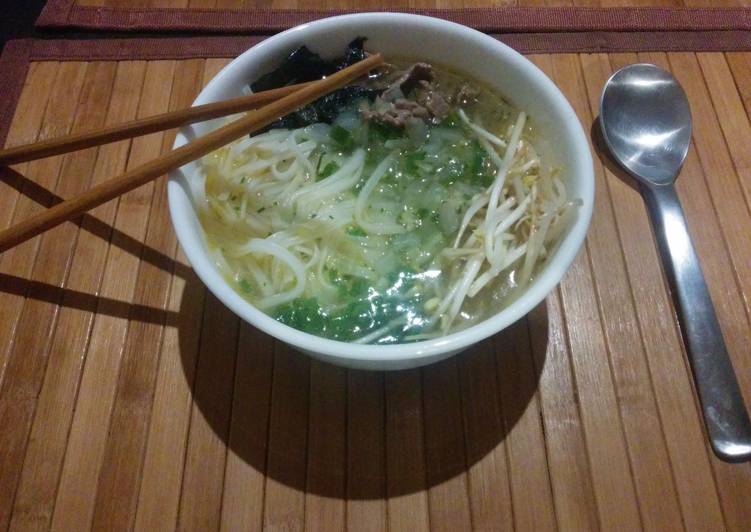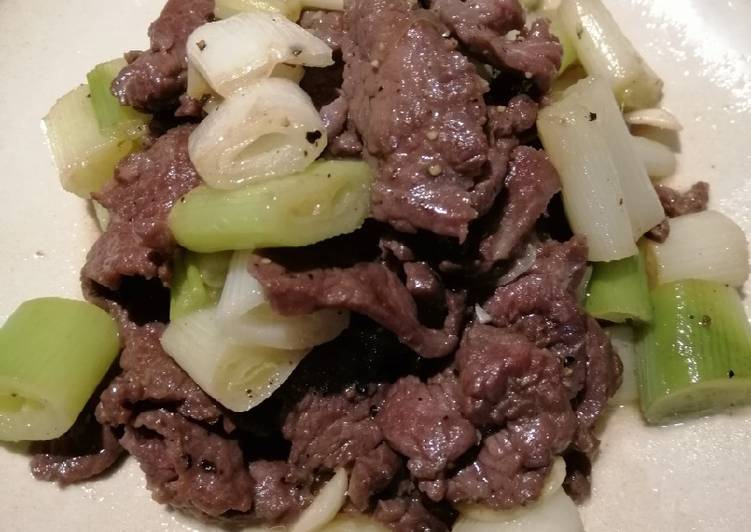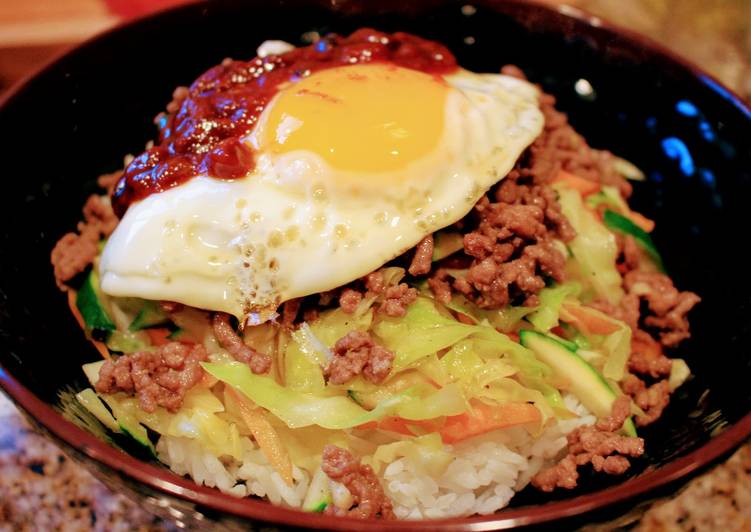
Hey everyone, it is me, Dave, welcome to our recipe site. Today, I’m gonna show you how to make a special dish, traditional japanese ramen (with beef). One of my favorites. This time, I am going to make it a little bit unique. This is gonna smell and look delicious.
Traditional Japanese Ramen (with beef) is one of the most popular of recent trending foods on earth. It is enjoyed by millions every day. It’s simple, it is fast, it tastes delicious. They’re nice and they look fantastic. Traditional Japanese Ramen (with beef) is something that I have loved my entire life.
Ramen is a very popular noodle soup in Japan. Ramen noodles are originally Chinese style noodles, but it's been changed and improved over the years, and evolved to our own food. There are millions of Ramen restaurants in Japan from mom and pop Chinese restaurants in neighborhoods, Ramen street carts open late at night, to sophisticated Ramen. Traditional Japanese Ramen (with beef) is something which I've loved my entire life.
To begin with this recipe, we have to prepare a few components. You can cook traditional japanese ramen (with beef) using 16 ingredients and 7 steps. Here is how you cook it.
The ingredients needed to make Traditional Japanese Ramen (with beef):
- Take broth
- Take 1 1/2 liter chicken broth
- Prepare 1 tbsp ginger, finely chopped
- Prepare 1 tbsp red pepper, finely chopped (optional, if you like spicy)
- Take 2 tbsp chives, finely chopped
- Prepare 2 tbsp soy sauce
- Take 4 tbsp sesame oil
- Make ready 2 garlic cloves, finely chopped
- Get 4 grams Hondashi soup stock
- Prepare 2 tbsp scallion tails (finely chopped)
- Take dish
- Prepare 300 grams Rice ramen
- Take 4 tbsp scallions (just the tails), finely chopped
- Make ready 1 Nori (sushi seaweed) cut in small strips (1x3cm)
- Get 2 thin beef steaks, cut in small pieces
- Take 200 grams bean sprouts
Girl drowns her sorrows in a bowl of ramen. She apprentices with a tough Japanese ramen chef, discovers the beauty of traditional Japanese culture, gets a career, and wins a boyfriend upgrade. TRADITIONAL JAPANESE RAMEN IN THE DENVER, CO AREA. Steamy, rich broth with fresh made noodles and authentic Japanese experience in every bite.
Instructions to make Traditional Japanese Ramen (with beef):
- Prepare all ingredients (chop, cut, etc.)
- Start boiling the chicken broth.
- Meanwhile, heat a pan with the sesame oil, and start cooking the garlic for 1 minute (until golden.) Then add to the pan the soy sauce, 2tbsp of the scallion tails, the chopped chives, the ginger and the red pepper. Cook for ~2 minutes. This will your ramen broth seasoning.
- Pour into the boiling chicken broth the ramen seasoning that you cooked in step 3. Also add the Hondashi soup stock. Keep boiling and stirring the broth for 10 more minutes.
- Meanwhile put the rice ramen in plain boiling water. It will take about 3 or 4 minutes to cook. It should be "al dente." Once cooked, rinse it with cold water to stop the cooking process.
- Prepare the plate: In a deep soup plate put some rice ramen, some 1 tbsp of the remaining scallions, some bean sprouts, 1/4 of the beef and some Nori leave pieces. TIP: try to accommodate these ingredients in the same way for all plates: just looks nice… :)
- Just before serving, pour the prepared broth to fill the plate to serve. Enjoy!
TRADITIONAL JAPANESE RAMEN IN THE DENVER, CO AREA. Steamy, rich broth with fresh made noodles and authentic Japanese experience in every bite. Authentically prepared by an experienced Japanese chef from Osaka, Japan. We provide authentic taste of traditional Japanese Ramen to our customers by using fresh and natural ingridients only. We have traditional Ramens from all regions of Japan such as HAKATA Tonkotsu, SAPPORO Miso, TOKYO Shoyu, NAGASAKI Seafood.
So that is going to wrap it up for this special food traditional japanese ramen (with beef) recipe. Thanks so much for your time. I am sure that you will make this at home. There’s gonna be interesting food at home recipes coming up. Don’t forget to bookmark this page on your browser, and share it to your family, friends and colleague. Thank you for reading. Go on get cooking!

